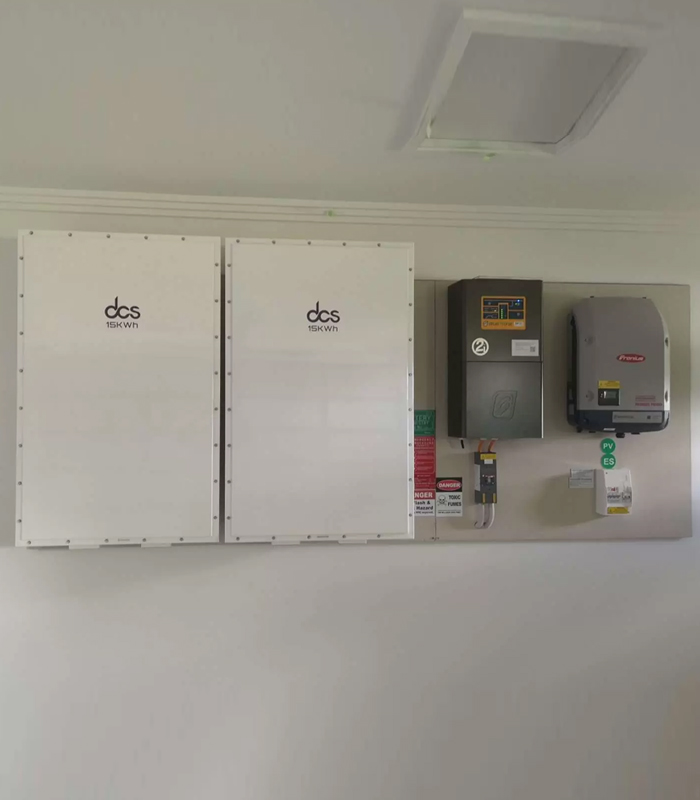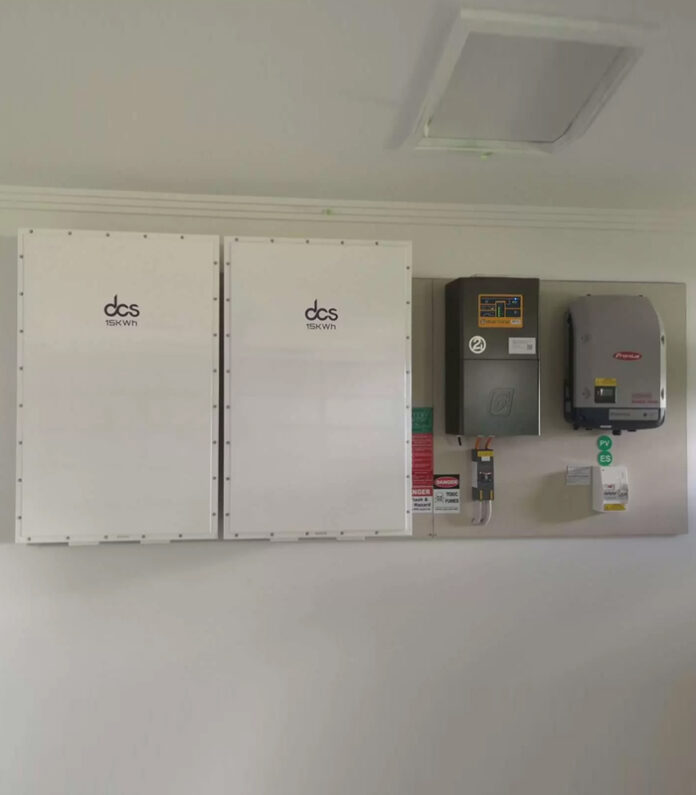Reliable PV panel batteries are essential when harnessing solar power for your home or business. These batteries store the energy your solar panels generate, allowing you to use them when the sun isn’t shining. In this shopping guide, we will explore the different types of solar batteries available on the market, how to choose the right size battery for your system, key features to look for in high-quality PV panel battery, and tips for maintaining your solar battery for long-term performance.
Understanding PV Panel Batteries and Their Importance
PV panel batteries, or solar batteries, play a pivotal role in the efficacy of solar power systems for domestic and commercial settings. They act as a reservoir for the electricity generated by solar panels during daylight hours, enabling the stored energy to be utilized during nighttime or overcast conditions. This capability is fundamental, transforming solar power from a direct, use-it-or-lose-it energy source into a versatile, on-demand power supply.
Including a battery storage system enhances independence from the national grid, reduces reliance on conventional energy sources, and, crucially, lowers electricity bills. Additionally, in power outages or disruptions scenarios, a solar system equipped with sufficient battery storage can continue providing power, offering an added layer of security and peace of mind.
Moreover, the significance of PV panel batteries extends to the broader impacts of renewable energy adoption. By facilitating the efficient use of solar power, batteries contribute to the reduction of carbon footprints and the advancement towards a more sustainable and environmentally friendly energy landscape. Therefore, understanding the role and selecting the correct type of solar battery is a practical consideration for optimizing solar systems and an ethical decision in the journey towards sustainable living.
Types of Solar Batteries Available on the Market
A diverse selection of battery technologies is available in solar energy storage, each characterized by unique advantages tailored to varying requirements and applications. Predominantly, the market offers three principal types:
Lead-acid, lithium-ion, and flow batteries. Lead-acid batteries, a technology well-established for over a century, are prized for their cost-effectiveness and reliability. They are typically utilized in off-grid solar systems where size and weight are not restrictive. However, their lower energy density and shorter lifespan than modern alternatives mean they may require more frequent replacement and maintenance.
Lithium-ion batteries, conversely, have surged in popularity, especially in residential solar installations, thanks to their higher energy density and longer cycle life. These batteries offer a compact and lightweight solution with faster charging times, making them an ideal choice for energy storage in space-constrained environments. Despite their higher upfront cost, lithium-ion batteries provide a superior long-term return on investment due to their durability and efficiency.
Flow batteries, a less standard but promising technology, offer the advantage of scalability and long discharge times. Their unique mechanism allows for the separation of energy storage from power generation, enabling the system to be scaled up easily by increasing the electrolyte volume. Flow batteries are particularly suited for large-scale energy storage applications, where long-duration energy discharge is crucial.
Selecting the appropriate battery type for your solar system hinges on understanding these distinctions, along with considering your specific energy storage needs and the constraints of your installation site.
How to Determine the Right Size Battery for Your System?
Determining the appropriate battery size for your solar system is a critical decision that hinges on accurately assessing your energy demands alongside the output of your solar panels. Begin by calculating your daily energy consumption, which can be derived from your household or business utility bills. This calculation should encompass all electrical devices and systems relying on solar power. Following this, evaluate the energy production capacity of your solar panels, usually expressed in kilowatt-hours (kWh). Various factors, including the geographical location of the installation, panel orientation, and potential shading, influence this figure.
Once you have these two critical pieces of information, consider the autonomy of your system—how many days do you wish to run solely on battery storage without solar input? This is particularly pertinent in areas prone to prolonged overcast conditions or during winter when sunlight is scarce. A general rule of thumb is to aim for a battery capacity that can support 3 to 5 days of your calculated energy needs, ensuring a buffer for days with minimal solar generation.
Additionally, factor in the depth of discharge (DOD) of the battery technology you’re considering. Batteries should be partially depleted regularly, and the usable capacity will depend on the specific DOD recommended by the manufacturer. By meticulously combining these assessments, you’ll be well-equipped to select a battery size that not only meets your energy requirements but also optimizes the efficiency and sustainability of your solar power system.
 Key Features to Look for in High-Quality Solar Batteries
Key Features to Look for in High-Quality Solar Batteries
When in the market for PV panel batteries, discerning the characteristics that denote a superior product is paramount. Optimal energy density is a critical feature; it determines how much power can be stored in a given size, affecting the battery’s efficiency and suitability for constrained spaces. Another indispensable attribute is an extended cycle life. This refers to the number of complete charge and discharge cycles a battery can undergo before its capacity falls below 80% of its original capacity. A longer cycle life signifies reduced replacement frequency, enhancing the system’s cost-effectiveness.
Rapid charging capability is also essential, enabling the battery to replenish its stored energy swiftly during peak sunlight, thus maximizing the utility of available solar energy. Equally, the presence of a sophisticated battery management system (BMS) cannot be overstated. A robust BMS safeguards the battery against potential risks such as overcharging, deep discharge, and thermal overload while balancing the cells to promote uniform usage and extend the battery’s operational lifespan.
When carefully considered, these key features can guide consumers towards making informed decisions, ensuring the selection of a high-quality solar battery that aligns with their energy storage needs and sustainability goals.
The Role of Battery Management Systems in Solar Batteries
At the heart of ensuring the efficacy and longevity of solar batteries lies the Battery Management System (BMS). This sophisticated circuitry oversees the intricate operations of charging and discharging, which is pivotal in maintaining the health and efficiency of the battery. A BMS plays a critical role by monitoring individual cell voltages within the battery pack, ensuring they remain within safe operating parameters. This function is crucial to prevent overcharging or deep discharge situations, which can significantly impair the battery’s performance and lifespan. Moreover, the BMS actively manages the temperature of the battery.
Excessive heat is a known detriment to battery cells, potentially leading to reduced life expectancy or, in worst-case scenarios, safety risks. Through temperature regulation, the BMS mitigates these risks, maintaining optimal conditions for battery operation. Another vital function of a BMS is cell balancing. Over time, individual cells within a battery can exhibit variations in charge capacity, leading to imbalances. A BMS addresses this by redistributing the charge as necessary, ensuring all cells work harmoniously and efficiently. This balancing act not only maximizes the battery’s usable capacity but also prolongs its overall service life.
A BMS is indispensable for modern solar batteries. It orchestrates a complex array of protective and optimization processes that safeguard the battery’s integrity, maximize its performance, and extend its usable life.
Tips for Maintaining Your Solar Battery to Ensure Long-Term Performance
Proper maintenance of your PV panel batteries is pivotal to their longevity and efficiency. Conduct routine inspections to detect any signs of wear or damage early on. Ensure the connections are secure and corrosion-free by cleaning the terminals regularly with a suitable brush and applying anti-corrosion paste if needed.
Keeping the batteries at a stable temperature and avoiding exposure to extreme heat or cold is advisable, as temperature fluctuations can negatively affect battery life. Ventilation is also crucial; ensure your battery storage area is well-ventilated to dissipate heat effectively. For optimal performance, adhere to the manufacturer’s recommendations on charging practices, avoiding overcharging or allowing the battery to deplete completely.
If applicable to your battery type, implementing a schedule for deep cycle recharging can help recalibrate battery capacity and enhance its effective lifespan. Finally, monitoring the battery’s performance through a battery management system (BMS) will help identify issues before they escalate, ensuring that your solar battery remains a reliable power source.
Navigating the Cost of Solar Batteries for PV Panels
Investing in solar batteries for PV panels represents a significant component of the overall cost when setting up the system. The price spectrum of these batteries is broad, influenced by factors such as technology type, capacity, and brand reputation. Lithium-ion batteries, whilst presenting a higher initial outlay than lead-acid types, offer superior efficiency, longer lifespans, and greater energy density, making them a financially sound choice in the long term.
It’s imperative to evaluate not just the purchase price but also the battery’s expected lifecycle and maintenance requirements. Purchasers should also consider the potential savings on electricity bills, the possibility of government subsidies or incentives for renewable energy investments, and the environmental benefits of reducing grid dependency. The return on investment (ROI) is maximized when the chosen battery aligns with your specific energy needs, installation constraints, and budgetary considerations.
Moreover, engaging with reputable suppliers and installers can further ensure you receive a quality product and service, reducing the likelihood of future costs associated with replacements or inefficiencies. By carefully assessing these elements, individuals can make an informed decision, turning the upfront expense of solar batteries into a worthwhile investment towards sustainable energy autonomy.
Conclusion
Selecting the optimal PV panel batteries elevates the efficiency and reliability of solar power systems for both homes and businesses. This guide has navigated through the critical considerations in making an informed choice—from understanding the pivotal role of batteries in energy storage and the variety available in the market to sizing your battery accurately and identifying the essential features of high-quality solar batteries. Embracing the insights on maintenance and the economic aspects ensures that your investment not only supports your immediate energy requirements but also contributes to the broader objectives of sustainability and energy independence.
FAQS
Q: How long do PV panel battery last?
A: The lifespan of PV panel battery varies depending on the type and quality. Lithium-ion batteries typically offer a lifespan of 10 to 15 years, while lead-acid batteries may last between 5 to 7 years under optimal conditions.
Q: Can solar batteries withstand extreme weather?
A: Most solar batteries are designed to be durable and can operate efficiently across a range of temperatures. However, extreme weather conditions can affect their performance and longevity. It’s advisable to install batteries in a location that minimizes exposure to severe weather.
Q: Are there any government incentives for installing solar batteries?
A: Many regions offer incentives or rebates for installing solar power systems, including batteries. These incentives vary by location, so it’s recommended to check with local authorities or renewable energy advisory services for the most current information.
Q: How can I maximise the efficiency of my solar battery?
A: To maximise efficiency, ensure your solar battery is correctly sized for your needs, maintain it according to manufacturer guidelines, and utilise a Battery Management System (BMS) to monitor and optimize its performance.
| Other Good Articles to Read |
| Niche Blogs Connect |
| Blogs 97 |
| Blog Stitution |
| Blogs Unplugged |
| Blogs Cotch Rouge |
| Blog Signatr |
| Blog Sintonias |
| Blog Zilla |
| Consumer Forums |
| Finance Forums |
| G Blogs |
| Too Blog |
| Related Business Listings |
| Contact Directory |
| Local Business Profiles |


